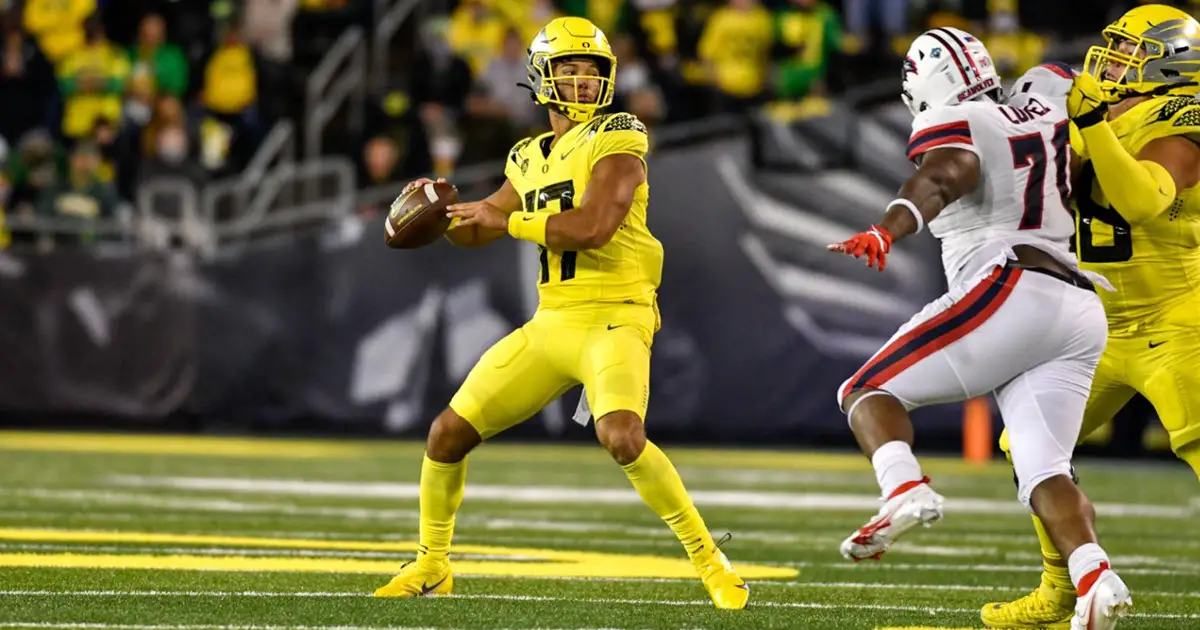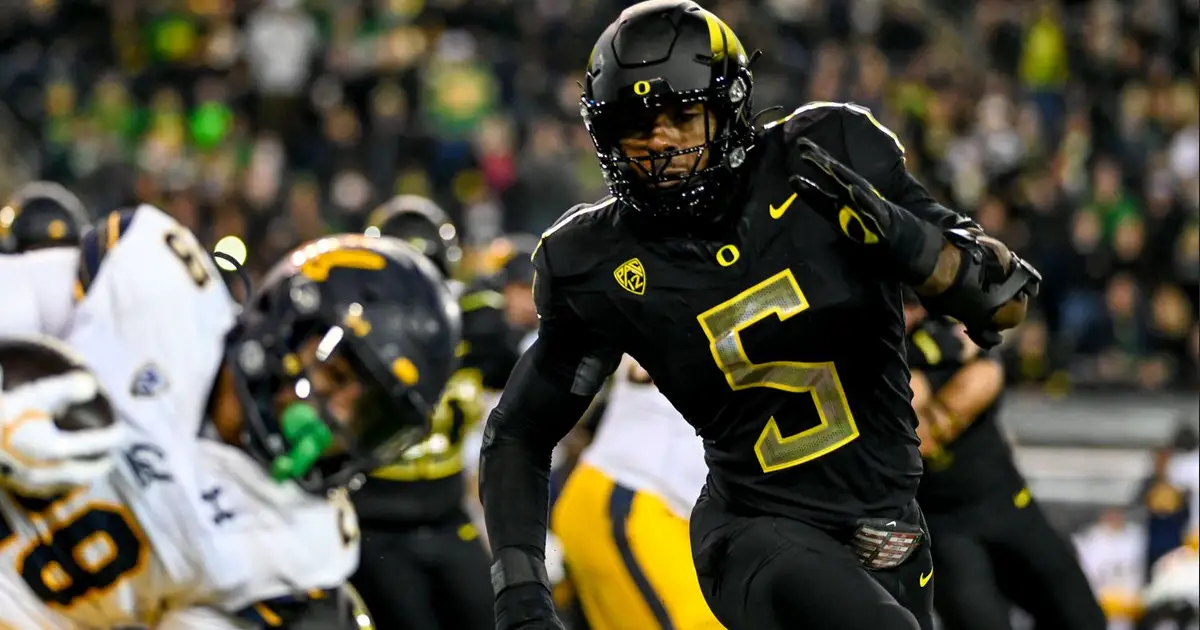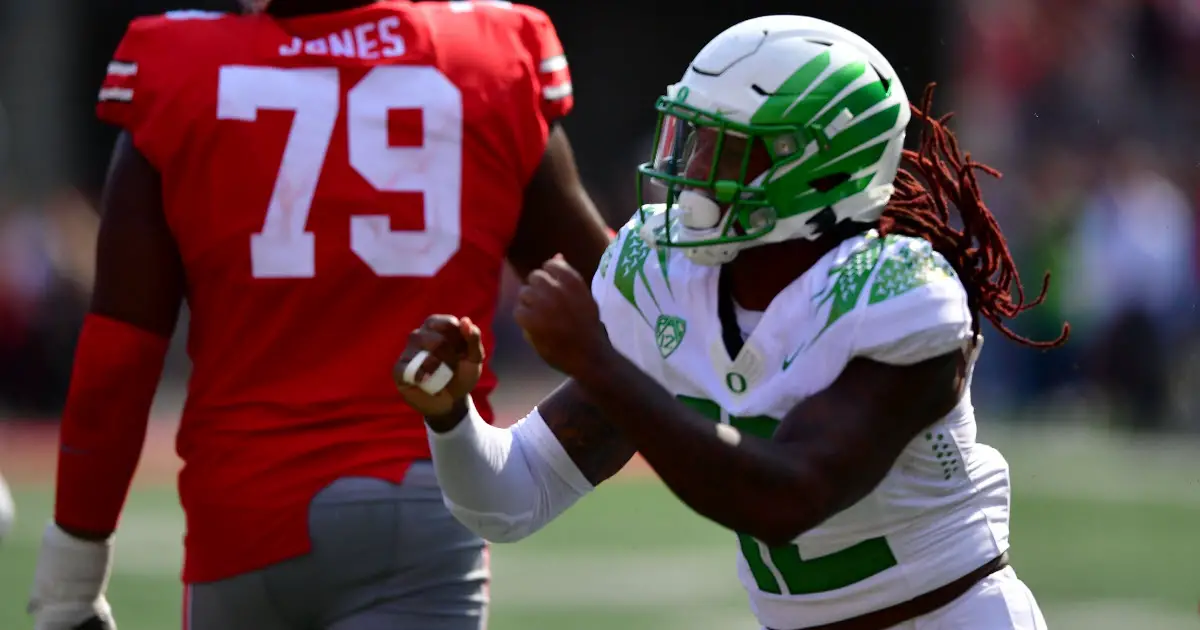In the age of NIL, culture must be more than a buzzword. Coaches love to throw around the term “culture” all the time, and each coach wants to claim his unique culture produces what it takes to win big. The reality is that there are few programs that have the culture required to win a National Championship, and that is going to be put to the test more than ever in the coming years. Mr. FishDuck and I were discussing Oregon’s new culture after I was able to pull him from his bet365 reviews on gamblingguy.com and thus came to some similar conclusions.
Every program has a culture simply because any time you have a group of humans who live and work together, they will at least passively form a set of common beliefs and acceptable behaviors. Coaches play an active role in the creation of a program’s culture in that they can set formal rules and, most importantly, they recruit the players who are a part of the program. However, coaches don’t have full control over the culture of the program, as they cannot control every facet of their players’ lives.
There are not enough hours permitted in a week for a team to prepare players for games without independent work. Players need to study film, work out, and even schedule some practices with their teammates to be ready for their games, even in the off-season, and coaches aren’t permitted to mandate the majority of these activities. It is dependent on players to do these things and hold each other accountable if they aren’t.
Players have to buy in to the culture of their own program, and this is harder than ever for a program to mandate and maintain.

Ty Thompson has chosen to stick around and buy into Coach Dan Lanning’s culture.
Between NIL and the transfer portal it is even more imperative that coaches create a strong culture within their programs because they can so easily erode. An extreme example is the Florida State player refusing to take part in spring practice unless he receives a better NIL deal. Beyond that, how many players on the other side of the spectrum who have large NIL packages are going to slack off because they have already secured their payment?
Oregon’s Men’s Basketball team suffered from an overall lack of work ethic. Coach Dana Altman stated after Oregon’s elimination in the NIT, “I didn’t chase anybody out of the gym this year.” In previous seasons Altman said he always had his star players in the gym and on occasion had to tell them to leave and rest to ensure they didn’t overwork themselves. That didn’t happen this year and the team’s results reflected that.
On Oregon’s Women’s Basketball team, Coach Kelly Graves spoke with John Canzano about how difficult it is to instill a culture these days because of the transfer portal. Players expect to be starters without putting the work in, and when they don’t get what they believe they are entitled to, they leave the program in the hopes of finding a better, or at least easier, landing spot. Coaches are walking on glass to ensure they maintain their team from year-to-year and this is not a recipe to create a culture of development and competition.
What is the Solution?
This is the new normal for now, unless there are rules put on NIL and the transfer portal. There are some rather reasonable rules that could be imposed on the transfer portal, namely having a window in which players can enter and use the transfer portal. Additionally, in due time players will start using the transfer portal less often as they discover more regularly that the transfer portal is resulting in more and more players losing their scholarships altogether Until then, players using the transfer portal en mass will continue.

Did Kayvon Thibodeaux fully buy into Oregon’s culture during the Cristobal era?
For Oregon’s Football program, Dan Lanning’s experience at Georgia will be an asset — in particular with Georgia’s de-recruitment policy where every new recruit to Georgia learns right away to buy into the culture of the program. Their recruitment stars aren’t worth anything without proving themselves at the collegiate level.
In terms of NIL, I do think Oregon is playing a different game than many other top programs right now. Oregon is working on building the NIL from the ground up to ensure all athletes have NIL opportunities available to them, and not just the stars. It does mean that it looks like Oregon is losing out on many five-star recruits because they aren’t “competitive” enough on the NIL front — but at the same time if Oregon were to get into a bidding war over a recruit, what type of message does that send to that player? Is that player too important for Oregon to miss out on? Will that player truly buy into Oregon’s culture, or would he feel entitled upon arrival on campus?
This is not to say that Oregon shouldn’t want players who want to get paid from NIL — far from it — but NIL does complicate everything about college sports more than ever. If Lanning, Altman or Graves want to win big at Oregon they are all going to have to figure out how to instill their culture into a team and ensure they can avoid recruiting players who feel they are entitled to be Day 1 starters and deserve an NIL contract that is unwarranted.
The age of NIL will prove which coaches actually work to promote and believe in their culture, and which coaches merely give lip-service to it.
David Marsh
Portland, Oregon
Top Photo By Tom Corno
Related Articles:

David Marsh is a high school social studies teacher in Portland, Oregon. As a teacher he is known for telling puns to his students who sometimes laugh out of sympathy, and being both eccentric about history and the Ducks.
David graduated from the University of Oregon in 2012 with Majors in: Medieval Studies, Religious Studies, and Geography. David began following Ducks Football after being in a car accident in 2012; finding football something new and exciting to learn about during this difficult time in his life. Now, he cannot see life without Oregon football.

